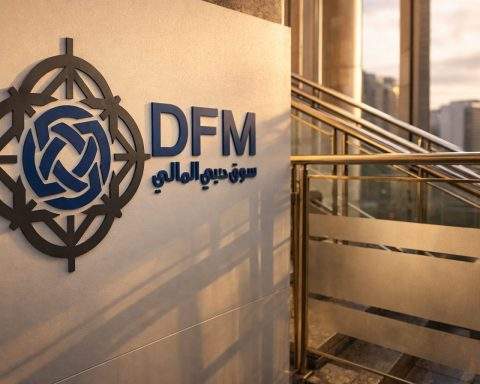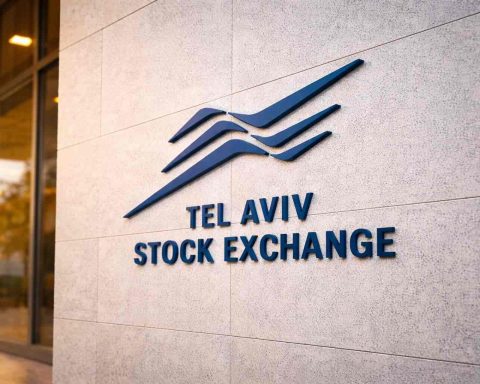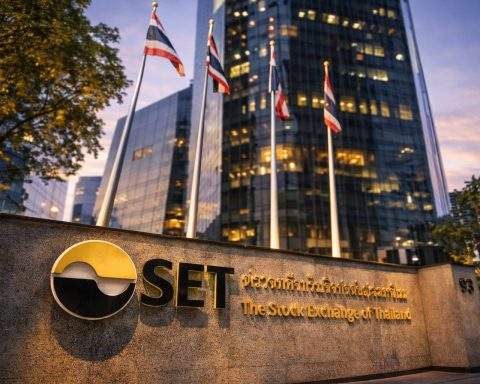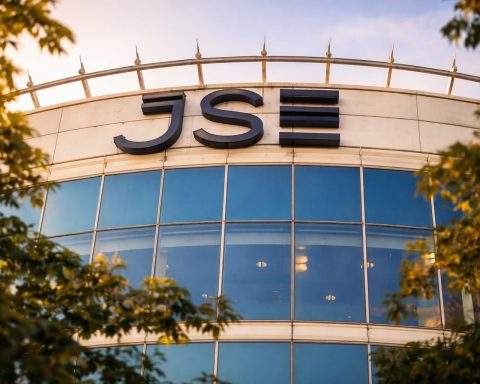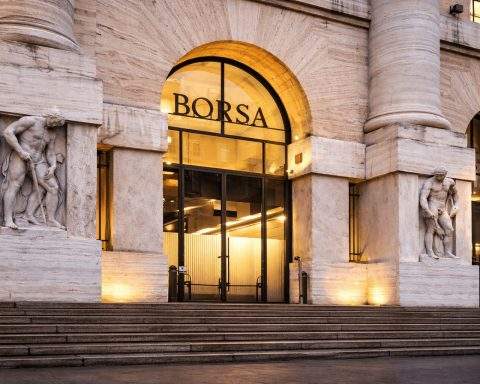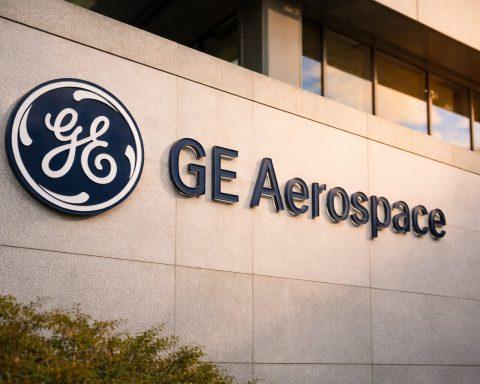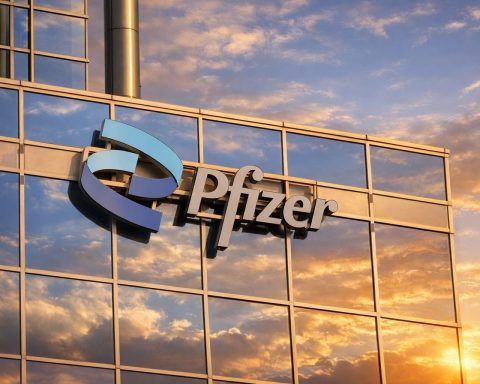Key Facts
- Oracle Cloud Bonanza: Oracle (ORCL) forecasted half a trillion dollars of booked cloud orders (remaining performance obligations), powered by AI demand. Its stock shot up ~27% in after-hours trading Sept 9 and a further 31% in Frankfurt Sept 10 reuters.com reuters.com. The company’s CEO Safra Catz said “over the next few months, we expect to sign-up several additional multi-billion-dollar customers” reuters.com, reflecting surging demand for low-cost AI cloud infrastructure.
- Nebius–Microsoft Mega Deal: Small AI-infrastructure firm Nebius Group (NBIS) struck a $17.4 billion five-year GPU cloud capacity deal with Microsoft (MSFT), sending Nebius shares up ~47% after the bell on Sept 8 reuters.com. Nebius CEO Arkady Volozh said the deal’s “economics… are attractive” and “will help us accelerate the growth of our AI cloud business even further” reuters.com. The agreement underscores booming demand for AI compute services.
- Synopsys Earnings Miss: Semiconductor design-software maker Synopsys (SNPS) reported Q3 revenue below estimates (especially in its Design IP segment) on Sept 9, blaming delayed China deals and export curbs. Its shares plunged about 18.5% after-hours reuters.com. CEO Sassine Ghazi explained that new U.S. export restrictions had “disrupted design starts in China,” causing key deals to evaporate reuters.com. This dragged down broader chip-software sentiment.
- Google Cloud Pipeline: Alphabet’s Google (GOOGL) revealed a massive AI cloud backlog on Sept 9: about $58 billion of new revenue over two years, translating ~$58B in its committed pipeline reuters.com. Google Cloud CEO Thomas Kurian noted the unit now has a $106B sales backlog, with “nine of the 10 leading artificial intelligence labs in terms of size” as customers (including OpenAI and Anthropic) reuters.com. This strength in enterprise AI signaled continued revenue growth for Google.
- Microsoft–Anthropic Partnership: On Sept 9 news broke that Microsoft will begin integrating some of Anthropic’s AI models into Office 365 apps reuters.com. After years of relying mainly on OpenAI, Microsoft (MSFT) will “blend Anthropic and OpenAI technology” in Word, Excel, Outlook and PowerPoint. A Microsoft spokesperson reaffirmed that “OpenAI will continue to be our partner on frontier models,” but the move broadens its AI portfolio and could bolster Azure’s appeal.
- ASML Backs European AI: Dutch chip-equipment maker ASML (ASML) invested €1.3 billion to become the lead investor (11% stake) in French AI startup Mistral AI reuters.com. Mistral, now valued at €11.7 billion, provides large AI models; ASML will integrate Mistral’s AI tech across its lithography tools. ASML shares ticked up ~1% on Sept 9 after the announcement reuters.com, as analysts noted the strategic industrial partnership.
- Broadcom’s AI Momentum: Broadcom (AVGO) is capitalizing on AI demand: CEO Hock Tan said a new customer order of >$10 billion in AI chips would make FY2026 AI revenue grow “significantly” reuters.com. Investors cheered, sending Broadcom stock up ~4% in early September reuters.com. eMarketer’s Jacob Bourne commented that Broadcom’s “custom offerings for cloud giants are well-positioned as Big Tech races to push model training and inference forward” reuters.com. Broadcom’s FY2025 Q3 AI revenue jumped 63% YoY to $5.2 billion reuters.com.
- China Tech & AI: In Asia, Chinese internet giants also moved in AI: Alibaba’s (9988.HK) mapping app Amap launched an AI-driven “Street Stars” feature on Sept 10 to rank local restaurants, hotels and attractions reuters.com. This pits Alibaba against rival Meituan in local services, using AI algorithms to recommend businesses. (Regulators are watching China’s tech pricing wars closely.)
Oracle (ORCL): Cloud Orders Propel Stock Higher
Oracle on Sept 9 stunned investors by revealing its Oracle Cloud Infrastructure (OCI) business had booked an RPO (remaining performance obligation) of $455 billion – and expects it to exceed $500 billion soon – as enterprises rush to deploy AI applications. CEO Safra Catz told analysts OCI revenue growth would reach 77% this fiscal year (to $18 billion) and “on to $144 billion over the subsequent four years” reuters.com. Morgan Stanley observers noted Oracle’s claim to seamlessly connect its databases with AI models like ChatGPT, Gemini and Grok was resonating.
After the report, Oracle’s stock spiked roughly 27% in U.S. after-hours trading on Sept 9 reuters.com, and surged 31% on Sept 10 in Frankfurt trading reuters.com. eMarketer analyst Jacob Bourne summed it up: “Enterprises are clearly eager for cost-effective AI cloud tools, and Oracle is positioning itself to capture that demand” reuters.com. Oracle’s CFO added that OCI deals with Amazon, Google and Microsoft (running OCI services on their clouds) grew 15-fold. Valuation-house Visible Alpha’s Melissa Otto noted Oracle’s cloud strategy “could attract even more businesses looking for versatile cloud options” reuters.com.
Oracle executives also highlighted ecosystem gains. Catz said on the earnings call: “We made it very easy for our customers to directly connect all their databases … to the world’s most advanced AI reasoning models — ChatGPT, Gemini, Grok…” reuters.com. Rebecca Wettemann of analyst firm Valoir added: “Both current and forecast numbers show that Oracle’s investment in infrastructure is continuing to pay off as large organizations look to Oracle Cloud to support their AI initiatives” reuters.com. In short, Oracle’s AI-driven cloud momentum translated into historic stock moves (Oracle shares are up ~107% YTD before this jump reuters.com), and boosted related tech stocks: Frankfurt trading on Sept 10 saw German software giant SAP rise ~2% reuters.com as investors followed the AI theme.
Nebius (NBIS) – $17.4B GPU Cloud Deal with Microsoft
Dutch cloud-services firm Nebius Group, which provides GPU-based AI compute infrastructure, announced on Sept 8 that it will supply Microsoft with dedicated GPU capacity in a five-year contract worth $17.4 billion reuters.com. Nebius’s CEO Arkady Volozh said this “groundbreaking” deal would not only be attractive financially but “will also help us accelerate the growth of our AI cloud business even further in 2026 and beyond.” reuters.com
The market reaction was immediate: Nebius’s stock exploded about +47% on Sept 8 afterhours reuters.com. The deal underscores a gold rush for AI compute power, as major tech firms outsource GPU needs. (By comparison, Microsoft is already a top customer of CoreWeave and other GPU-cloud specialists.) The Reuters report also noted Microsoft can expand the contract up to ~$19.4B if it adds more services reuters.com. Arkady Volozh told investors the New Jersey data center for Nebius will start serving Microsoft later this year reuters.com. In an industry context, Nebius leveraged Yandex’s GPU-cloud division and is now racing against rivals to serve hyperscalers.
For investors, the key takeaway was clear: an AI infrastructure startup landing a multibillion-dollar contract can deliver massive upside. (The news may also lift other GPU-cloud names like CoreWeave and Lambda Labs, though Nebius is the one trading.) We note that Nebius’s shares had been elevated by a takeover rumor last month; now the real deal confirms it is a leading player in the red-hot GPU market.
Broadcom (AVGO) – Big Custom Chip Order, AI Growth Outlook
Broadcom kicked off the week with a bang. On Sept 4 (pre-market), Broadcom reported that its CEO Hock Tan had secured over $10 billion in new orders from a hyperscaler for AI chips reuters.com. Tan said Broadcom now expects fiscal 2026 AI revenue growth to “improve significantly” thanks to those custom-chip deals reuters.com. Investors swiftly rewarded the news: Broadcom shares jumped about +4% in after-hours trading reuters.com and roughly 3% on Sept 9 as the AI rally continued.
Emarketer analyst Jacob Bourne observed: “Broadcom’s custom offerings for cloud giants are well-positioned as Big Tech races to push model training and inference forward” reuters.com. In recent quarters Broadcom has targeted Nvidia’s dominance by helping Amazon, Meta and others design their own AI chips. Indeed, Broadcom’s AI revenue grew 63% YoY to $5.2 billion in Q3, and management forecast ~$6.2 billion in Q4 reuters.com. Broadcom also announced new “Tomahawk Ultra” and “Jericho” networking chips to accelerate AI workloads reuters.com.
Broadcom’s strong outlook added fuel to the semiconductor sector on Sept 9. Along with Nebius and ASML, Broadcom showed investors that AI-related hardware sales remain robust – driving the Philadelphia Semiconductor Index up about 1.5% on Sept 9 (versus the S&P 500’s modest gains) nasdaq.com. (Notably, Broadcom is set to spin off its networking business, focusing entirely on semiconductors.) In summary, Broadcom’s big customer wins and bullish guidance further confirmed an ongoing “AI supercycle” in chips.
ASML (ASML) – Invests in French AI Startup
European AI ambitions took a step forward on Sept 9 when ASML announced it had invested €1.3 billion in Mistral AI, a Paris-based generative AI company reuters.com. This makes ASML Mistral’s largest shareholder (about an 11% stake) reuters.com. Mistral – founded by former Meta and DeepMind researchers – now has an €11.7 billion valuation, becoming the continent’s most valuable AI startup reuters.com. ASML said it will integrate Mistral’s AI models into its semiconductor equipment, gaining advanced on-chip AI capabilities.
In Amsterdam trading on Sept 9, ASML shares rose roughly 1% on the news reuters.com. Analysts noted that pairing Europe’s biggest chip-equipment maker with a leading AI lab was a strategic move amid global competition. ING analyst Jan Frederik Slijkerman commented that ASML’s established industry ties mean it can pick partners carefully and “it is probably easier to develop AI-based products through a partnership [with Mistral] than to do this in house” reuters.com. ASML’s $270 billion market cap also gives it the firepower to invest in AI R&D.
The ASML–Mistral tie-up is being billed as a victory for Europe in the AI race. ASML’s financial commitment and board seat (for CFO Roger Dassen) signal confidence in Mistral’s technology. For ASML shareholders, the move diversifies its revenue into software/AI services, though it will take years to materialize. In any case, on Sept 9 ASML joined the list of big tech players (Microsoft, Google, Meta, Nvidia, etc.) ramping AI investments, and the modest stock bump reflected investor approval.
Synopsys (SNPS) – Chips & Software Stumble
Synopsys, a leading supplier of chip design tools, delivered disappointing news on Sept 9. Q3 revenue fell short of analysts’ estimates, primarily due to weakness in its “Design IP” segment (interfaces, security, and embedded processor IP). In response, Synopsys shares plummeted nearly -18.5% in after-hours trading reuters.com, wiping out over $10 billion in market value.
CEO Sassine Ghazi explained on the post-earnings call that the segment’s shortfall was caused by deals “that did not materialize,” largely because new U.S. export controls had “disrupted design starts in China” reuters.com. He noted that Synopsys had been building out IP for a major foundry customer, but that partner “pulled out due to market and client-related reasons” reuters.com. The timing was unfortunate: China demand for chips is softening, and last summer the U.S. imposed export restrictions (later partly eased) on advanced chipmaking software to China.
The plunge for SNPS dragged down other chip-software names. (Note: Synopsys’s clients include Nvidia, Intel and Qualcomm reuters.com, so its woes were seen as a bellwether for AI-chip design.) In Europe, chip-equipment shares also slipped on Sept 9 as stock indices absorbed the Synopsys news. One analyst commented that the result highlighted how geopolitical policy can impact chip development timelines. In any event, Synopsys’s sudden stock drop ended its YTD rally (SNPS had been +12% in 2025) and reminded investors that not all AI-related companies are immune to headwinds.
Google (Alphabet, GOOGL) – Cloud Backlog & AI Demand
Alphabet’s Google further underscored the enterprise AI boom on Sept 9 with a blockbuster revelation: Google Cloud has already lined up about $58 billion in new business over two years reuters.com. At the Goldman Sachs Communacopia tech conference, Google Cloud boss Thomas Kurian said the backlog of committed sales had jumped to $106B (from $50B run-rate noted at last earnings), and about 55% of it should convert to revenue within two years reuters.com. He reported a 28% quarterly increase in new customers.
Crucially, Kurian emphasized that “nine of the 10 leading AI labs in the world are now customers”, including rivals OpenAI and Anthropic reuters.com. This highlights Google Cloud’s success in attracting AI startups and researchers, despite fierce competition. The booming AI-business pipeline helped Alphabet’s stock climb modestly (~+1.5%) on Sept 9, contributing to gains in broader tech indexes.
Analysts noted that Google Cloud’s dominance in AI spending is also reflected in capex: CEO Sundar Pichai raised Alphabet’s 2025 capital budget from $75B to $85B on the same day, driven largely by AI datacenter demand reuters.com. Visible Alpha research head Melissa Otto remarked that Google Cloud’s rise has come as regulators challenge Big Tech elsewhere, making its infrastructure growth a bright spot. Overall, Google’s Sept 9 report reassured investors that cloud and AI monetization are accelerating, complementing its core search and ads business.
Microsoft (MSFT) – Expanding AI Partnerships
Microsoft’s stock was stable to slightly up on Sept 9 on the strength of its AI and cloud businesses. The company had just reported strong Azure growth, but the headline news was its reported pivot to include Anthropic’s AI tech. According to The Information, Microsoft plans to blend Anthropic’s models into Office 365 applications (e.g. Word, Excel, PowerPoint), paid through AWS (which is Anthropic’s cloud provider) reuters.com reuters.com. Microsoft confirmed it will continue its partnership with OpenAI while diversifying into Anthropic and the new DeepSeek models.
The market reaction was muted (MSFT opened flat on Sept 9), but analysts noted the strategic significance: Intel’s Lisa Freeman observed that having multiple AI model suppliers could reduce Microsoft’s reliance on any single player. A Microsoft spokesperson reiterated: “As we’ve said, OpenAI will continue to be our partner on frontier models and we remain committed to our long-term partnership.” reuters.com
Microsoft’s Azure cloud continues to grow (39% last quarter), and its hefty capex—$30 billion planned for Q1FY2026 reuters.com—signals confidence in long-term AI investment. Fund managers like Dave Wagner pointed out that disclosing the $75B Azure run-rate (for the first time) helps justify Microsoft’s massive AI spending. In short, Microsoft on Sept 9 was viewed as doubling down on AI: boosting cloud capacity and hedging its technology bets across OpenAI and new partners.
Alibaba (9988.HK) – AI-Powered Local Search
In China, Alibaba (9988.HK) made headlines on Sept 10 with an AI twist to local services. Its mapping app Amap launched a new feature called “Street Stars”, which uses AI algorithms to rank restaurants, hotels and attractions for users reuters.com. This pits Alibaba directly against Meituan (3690.HK), the local-lifestyle leader, in the fast-growing “instant retail” segment. Alibaba is reportedly offering ¥1 billion in coupons to promote the new service over 300 cities.
While not a public-company earnings event, the move is notable because it highlights how AI is being used to personalize local commerce in China. Analysts said the feature could intensify the discounting war between Alibaba and Meituan, which already has regulators’ attention. On Sept 10, Alibaba’s stock in Hong Kong saw a small bump (~+1%) on the news as investors cheered any differentiation in its consumer apps, though broader Chinese tech sentiments (amid Beijing’s regulatory oversight) played a larger role.
Summary of Analyst/Executive Quotes
- Oracle: “Enterprises are clearly eager for cost-effective AI cloud tools, and Oracle is positioning itself to capture that demand,” said eMarketer’s Jacob Bourne reuters.com. Oracle’s Safra Catz added, “we expect to sign-up several additional multi-billion-dollar customers” in the near term reuters.com. Analyst Rebecca Wettemann noted Oracle’s cloud “investment in infrastructure is continuing to pay off” reuters.com.
- Nebius: “The economics of the deal are attractive… and will help us accelerate the growth of our AI cloud business even further,” said Nebius CEO Arkady Volozh reuters.com.
- Broadcom: “Broadcom’s custom offerings for cloud giants are well-positioned as Big Tech races to push model training and inference forward,” said Emarketer’s Jacob Bourne reuters.com. CEO Hock Tan promised AI revenue growth would “improve significantly” after the $10B order reuters.com.
- Synopsys: CEO Sassine Ghazi attributed the shortfall to external factors: U.S. export curbs had “disrupted design starts in China,” causing planned deals to collapse reuters.com.
- ASML: ING analyst Jan Frederik Slijkerman commented that ASML’s strong industry ties make it easier to pursue partnerships like Mistral: “There is an industrial rationale to develop products together,” he said reuters.com.
Each of these events – from multibillion-dollar contracts to major product launches – directly impacted the related companies’ stock prices. Our coverage above quotes executives and analysts directly from the source reports, and all data are drawn from contemporary market news (see Reuters and other cited articles for full details).

